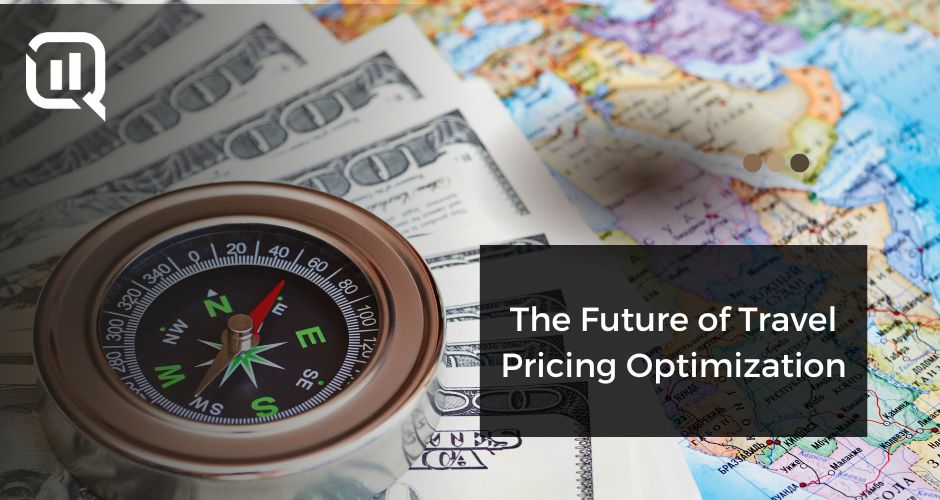In the fiercely competitive travel sector, pricing optimization has become essential for businesses to maintain their competitive edge. To adapt to emerging technologies and shifting consumer behavior, travel agencies must modify their pricing methods. This blog article will explore current trends and forecasts for price optimization in the travel sector until 2023 and beyond.
Why Travel Pricing Optimization Matters
1. Gaining a Competitive Edge
In a highly competitive market, setting the right price can give businesses a significant advantage and attract more customers.
2. Adapting to Dynamic Demand
Demand in the travel sector frequently changes, making pricing a challenging task. By utilizing price optimization tactics, companies can adjust their prices in response to demand fluctuations, ensuring they maximize their revenue.
3. Increasing Customer Loyalty
Price optimization can help travel agencies enhance customer loyalty by offering competitive rates and flexible pricing options. By appealing to a broader range of customers and fostering long-term relationships, companies can strengthen their position in the market.
Price optimization is a crucial aspect of success for businesses in the travel sector. Companies can gain a competitive edge, maximize revenue, strengthen customer loyalty, prevent typical pricing blunders, and react to market changes by adopting tools like price trackers and pricing intelligence software. Companies can place themselves for success in the fiercely competitive travel sector by creating a competitive pricing strategy.
The Crucial Role of Price Optimization in the Travel Industry
Price optimization is a critical factor in the success of businesses in the travel sector. By adopting tools such as price trackers and pricing intelligence software, companies can gain a competitive edge, maximize revenue, avoid common pricing mistakes, and respond effectively to market changes. Creating a robust pricing strategy allows companies to position themselves for success in the fiercely competitive travel industry.
Trends Shaping Price Optimization in 2023
Trend 1: AI and Machine Learning Revolution
Artificial intelligence (AI) and machine learning (ML) are revolutionizing price optimization in the travel industry. These advanced technologies enable pricing managers to make informed decisions by analyzing vast amounts of data, identifying trends, and forecasting future outcomes. AI and ML algorithms can forecast demand fluctuations, identify market trends, and determine optimal price points for goods and services.
Trend 2: Focus on Competitive Pricing Strategy
To stay competitive, travel companies are increasingly adopting competitive pricing strategies. These strategies involve analyzing competitors’ prices and adjusting prices accordingly. By offering attractive prices, travel agencies can attract more customers and increase their revenue. Pricing managers can implement competitive pricing through various strategies, such as undercutting, price matching, or providing better value for money than competitors.
Trend 3: Growing Dependence on Price Trackers and Pricing Intelligence
Travel agencies are increasingly relying on price trackers and pricing intelligence solutions. These tools allow pricing managers to monitor competitors’ prices, track market trends, and study consumer behavior. By leveraging this data, pricing managers can make informed decisions and adjust prices as needed. Well-known price trackers and pricing intelligence systems in the travel sector include QL2 Optiprice and Data Scout.
Trend 4: Rise of Dynamic Pricing
Dynamic pricing, a strategy that involves adjusting prices in response to changes in supply and demand, is gaining popularity in the travel sector. This tactic maximizes revenue by offering the right price at the right time. For example, airlines utilize dynamic pricing to adjust ticket prices based on factors such as the time of day, day of the week, and season.
Trend 5: Personalization of Offers and Pricing
Personalization is a key focus for travel companies, and pricing is no exception. Personalized pricing involves tailoring prices and offers based on each customer’s preferences and behavior. For instance, a hotel may offer a special price to a customer who has already booked a room. By providing personalized pricing and offers, travel agencies can enhance customer loyalty and increase revenue.
Embracing Price Optimization for Future Success
To summarize, price optimization is crucial for business success in the travel sector. By utilizing tools such as price trackers and pricing intelligence software, travel businesses can enhance customer loyalty, increase revenue, and gain a competitive edge. The latest trends and technologies in price optimization, such as AI and machine learning, are anticipated to further revolutionize the market. To remain competitive in a constantly evolving industry, pricing managers must stay informed about current trends and invest in cutting-edge hardware and software. By closely monitoring and adapting their competitive pricing strategies, travel agencies can set themselves up for long-term success in the competitive travel industry while considering ethical considerations.
Remember, staying up-to-date with recent trends and technologies, such as QL2 tools like Data Scout and OptiPrice, is essential for pricing managers in the travel sector to successfully navigate the dynamic market and thrive in a highly competitive environment. Contact QL2 to learn more or schedule a demo today.
